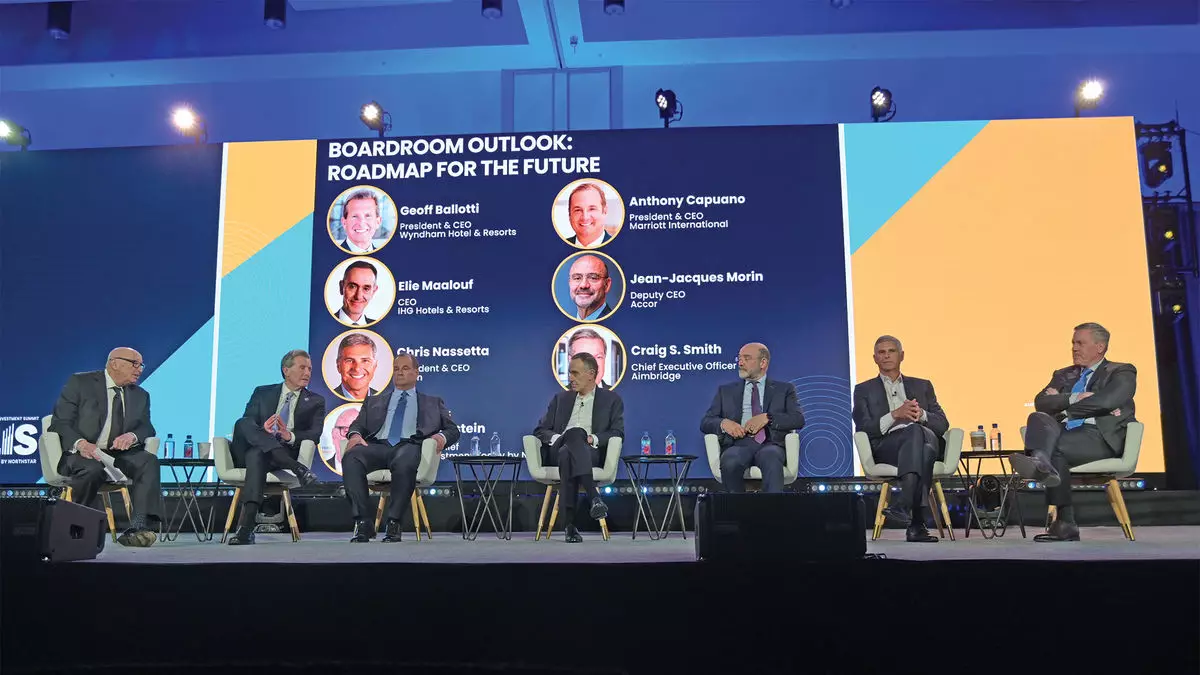The drive for Diversity, Equity, and Inclusion (DEI) in corporate America has gained unprecedented attention over the last few years. This phenomenon has been underscored recently by shifting political dynamics that threaten to reshape the very fabric of DEI initiatives. In the wake of political transitions, corporations, especially those in the hospitality sector, are reassessing their commitments to inclusivity while facing potential federal scrutiny regarding their policies.
A telling example of this reevaluation can be seen with Southwest Airlines, which rebranded its DEI leadership role to underscore a broader commitment to corporate citizenship. However, this change was rather understated, emerging quietly amid a flurry of political rhetoric directed at dismantling existing DEI programs at the federal level. This backdrop has undeniably placed a spotlight on the strategies employed by companies to either adhere to or distance themselves from government narratives surrounding DEI.
The United States Tour Operators Association (USTOA) has openly pledged its allegiance to advancing DEI, signaling a collective stance against any regression in inclusive practices prompted by political pressure. This voluntary reaffirmation is noteworthy; while the federal government rolls back its focus on DEI, associations like USTOA signal their intent to maintain a commitment to diversity, which could have far-reaching implications for constituents and partners.
At the recent Americas Lodging Investment Summit, hotel CEOs collectively expressed their strong adherence to DEI principles despite the ambiguous political climate. Executives from major hotel chains like Wyndham, Hilton, and Marriott voiced their intentions to promote an inclusive environment within their organizations. Such statements not only serve as a buffer against governmental shifts but also highlight the intrinsic value of diversity in consumer service sectors, where customer demographics are inherently varied.
Voices of Leadership: Insights from the Summit
During the summit, Geoff Ballotti, CEO of Wyndham, detailed specific initiatives designed to bring underrepresented groups into the hotel ownership landscape. His commitment to programs such as BOLD and Women Own the Room emphasizes a hands-on approach to fostering diversity and inclusion within ownership structures. The push for representation in leadership and ownership roles is critical, considering that such systemic changes may lead to broader cultural shifts in the hospitality industry.
Similarly, Chris Nassetta, CEO of Hilton, pointed out that diversity is a business imperative for hospitality businesses. He expressed the view that it is essential for teams to reflect the diverse clientele they serve, reiterating that the fundamental objective remains to cater effectively to guests. This statement brings to light the dual responsibility companies have: to uphold their corporate values while simultaneously meeting the demands of a diverse market.
Despite the positive rhetoric, leaders like Mark Hoplamazian, CEO of Hyatt, voiced concern regarding the shifting political landscape’s implications for corporate practices. His acknowledgment of the need for companies to navigate an uncertain direction suggests hesitation; there’s still a palpable lack of clarity regarding the future, especially concerning federal government dynamics and how they might influence corporate policies and public perception.
His caution is justified, considering that any organizational commitment to DEI could be scrutinized within a broader political framework. For hospitality companies, this could mean engaging in constant evaluation of policies and metrics to assess their alignment with evolving socio-political trends. As Beteta, CEO of Visit California, advised, the politics surrounding DEI demand careful navigation and strategic engagement.
A Sustainable Commitment to DEI
Ultimately, the interaction between corporate governance and political climates illuminates a pressing need for companies to formulate robust internal strategies that transcend external pressures. It is critical for the hospitality sector to prioritize its core values, taking a proactive stance on DEI rather than reacting to political currents. A thriving hospitality industry should inherently support opportunities for previously marginalized groups, contributing to societal growth and cohesion.
DEI is not merely a trend driven by electoral cycles; instead, it embodies a critical framework for fostering a competitive and innovative workforce. By investing in diversity initiatives, companies can better serve an increasingly diverse customer base while also fulfilling a moral obligation to promote equity and inclusion across their operations. The hospitality sector, with its unique intersection of service and community, bears a significant responsibility to lead the charge in creating inclusive environments that reflect the communities they serve. Embracing this ethos could foster not only corporate success but also a more equitable society.


Leave a Reply